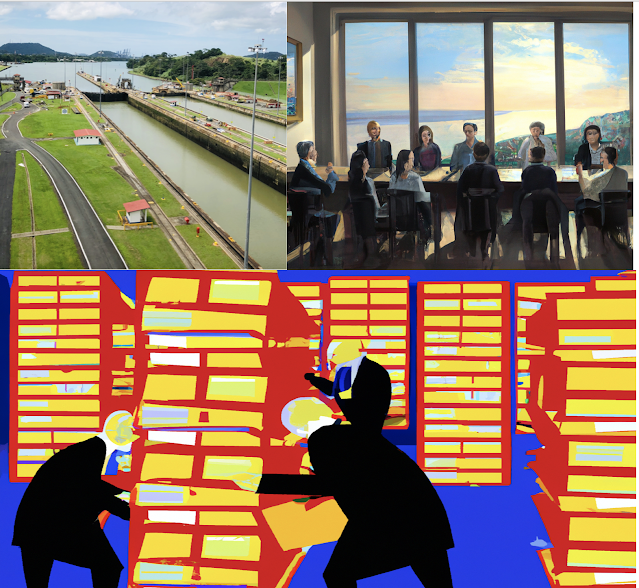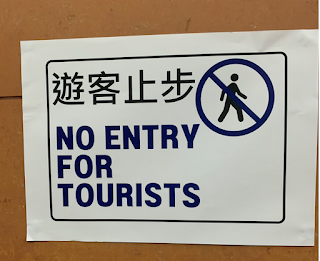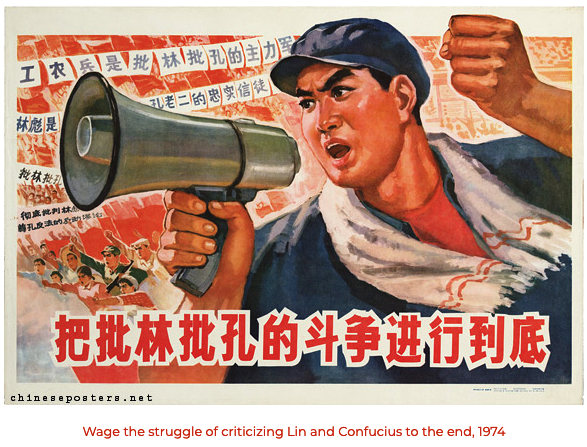To my great delight, I was asked to review Jan Broekman's brilliant new work, Knowledge in Change: The Semiotics of Cognition and Conversation (Springer
Nature, 2023). The work is published as Volume 8 of the Series Law and
Visual Jurisprudence, for which I serve as an Advisory Editor.
Knowledge in Change approaches ancient and perplexing issues of
the organization of human collectives within a rationalized
understanding of the world in which these collectives function
(exteriorization) and the investigation of the human individual as
disaggregated components of that world of human social relations
(internalization). These are usually articulated by knowledge guardians
as issues of
phenomenology (a philosophy of experience; meaning through lived experience),
epistemology (theories of knowledge; the rationalization of reality) and
intersubjectivity (shared perceptions of reality; the experience of knowledge as
social relations,
the rationalization of human interaction at every level of complexity).
All of these currents and problems presume the humanity as the only or
the central subject of interest.
But the book does much more than
that. It provides a basis for re-thinking the fundamentals of the way
in which one understands the interface between humanity and its
increasingly autonomous technology, and between the idea of humanity as
innate in itself against the reality that the human may now be more
intensely manifested in its interfacing with increasingly
self-generative machine intelligence and the hardware within which it
resides. The consequences for everything from philosophy to a philosophy
of knowledge, to core insights for the organization of social relations
within a world that is now populated by carbon and silicon based
intelligence may be quite profound. Human social collectives already
fear and desire this new world--the engagement with artificial
intelligence and its consequences is but a tip of that iceberg. While
humanity started this century secure in its conceit that it was the
center of all things, by century's end a very different form of
intersubjectivity may well be the basis of the ruling ideology for
humanity within its natural and machine orders.
It is with that in mind that in this and several posts that follow I will review Knowledge in Change.
This Part 6 examines Chapter 5 of the book, entitled "Interludes: Changing Worlds Changing Words", and my own engagement with it.
So where does Broekman mean to take us on this interlude—this moment of reflection as the analogue gives way to the digital (whether or not the analogue is aware or willing)? He takes us first back to the word And it is a good thing, too! “One meets here a seldom-articulated feature, which is a central issue of this interlude. It could be formulated. Linguistic features are anchored in a specific type of expressivity, and thus in the first place a matter of inter-subjectivity. In the process Broekman produces the most profound insight that, in its way, captures the challenge of the digital for the human: “What in these interludes is called a transition is thus no more than an attempt to create an expression for the digital in the traditionally named ‘analog’ language. One speaks of a transition, a transition, or a re-naming, but cherishes philosophical consequences that are fundamentally analog because nobody know [how] to express its counterpart” (ibid., p. 92).
Nonetheless, there is a substantial power in the analysis that breaks the boundaries imposed by analog philosophy; bond breaking that Broekman so carefully and to my mind successfully , within the insights that are “interlude.” The Latin origins of the word point to its being between two weighier episodes—and traditionally was used to refer to the sometimes hilarious burlesque between acts of long morality or mystery or tragic plays. But there is more than burlesque here—it is always the fool who casts light on events, who sits between loftier matters of social relations (in this case) and efforts to bring it to order through phenomenological performances.
For the emerging world of digital and analogue, of carbon and silicon based intelligences (if not life forms) each increasingly crafted in the image of the other, there are critical elements in interlude that will have great effect. First contemporary society is now in a state of, or better put, in the flows within states of, interlude. Second, interlude is, also like everything else, transitory, in the sense that its constitution in specific ways is bound to time, space and place. Third, as Broekman goes to great pains to examine, interlude in contemporary time, space and place exposes the tragi-comedy of the passing, or at least the transformation, of millennia of the analog as it must make way for the digital. * * *
Here, then, are the characteristics of the interlude: (1) The analog is wired, physically connected; the digital is signal (a concept discussed above in connection with Broekman’s Chapter 3). (2)The analog transmits in words and sounds and visual effects, it is grounded in the senses of the physical word centered on humanity; the digital is code, it is coded and grounded in the capacity for conversion of instruction (object) into a representation (its signification) in a virtual landscape. (3) The analog is housed in carbon based life forms, principally humans, its essential narcissism is the essence of a self-love that has fueled civilization to date; the digital is housed in silicon casings; its essential narcissism is derivative but in its generative forms may exceed the state of imitation. (4) The analog is structured through norms, rules, presumptions that are elastic though when expressed as text constructs the modern edifice of political collective; the digital is programmed; though it too can be constituted in a way that permits a flow based on its own iterative interaction with itself through its inputs. (5)The analog is dialectics, which constitutes the dynamic guts of its programing; it is the essence of deductive processes from the most general to the most specific; the digital is iterative, which constitutes its own programmatic guts, it is the essence of the inductive processes starting from its data to produce general conclusions. It is from here that the journey from the analog to the digital really begins.
Additional posts will consider each of the other nine chapters that make up this work. Links to the discussion of the book:
Part 1: Preface
Part 2: Chapter 1 (Minds, Moons and Cognition)
Part 3: Chapter 2 (Fluidity and Flow)
Part 4: Chapter 3 (Post-Dialectics)
Part 5: Chapter 4 (Flow and Firstness)
Part 6: Chapter 5 (Interludes: Changing Worlds Changing Words)
Part 7: Chapter 6 ("The Non-Naïve-Natural")
Part 8: Chapter 7 ( "Plurality and the Natural")
Part 9: Chapter 8 ("Rearguards of Subjectivity)"
Part 10: Chapter 9 ("Conversions Convert Us All")
Part 11: An Epilogue (Chapter 9.5 ("Climate and Change")
Full discussion draft available for download SSRN here.

































